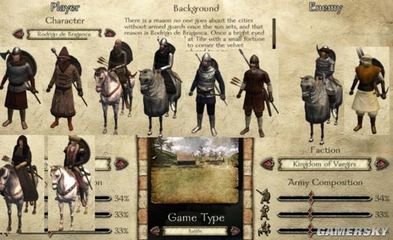延续性动词与非延续性动词用法攻略
●万小泉(安徽巢湖)
一、延续性动词和非延续性动词的概念
英语中,动词按其动作发生的方式、动作发生过程的长短,可分为延续性动词和非延续性动词。
延续性动词表示能够延续的动作,这种动作可以延续下去或产生持久影响。此类动词常见的如:learn, work, stand, lie,know, walk, keep, have, wait, watch, sing, read, sleep, live,stay等。
非延续性动词也称终止性动词、瞬间动词或短暂性动词,表示不能延续的动作,这种动作发生后立即结束。此类动词常见的如open, close, finish, begin,come, go, arrive, reach, get to, leave, move, borrow,buy等。
二、延续性动词的用法特征
1. 延续性动词可以用于现在完成时,其完成时态可与表示“段时间”的状语连用。表示“段时间”的短语有:for two years, during thepast three years, since接时间点或从句, how long等。如:
He has lived here for 6 years.他在这儿已住了六年了。
I have learned English sinceI came here.自从我来到这儿就学英语了。
2. 延续性动词不能与“点时间”状语连用。试比较:
误:It rained at eight yesterday morning.
正:It began to rain at eight yesterday morning.
析:rain为延续性动词,而at eight表示“点时间”,前后显然矛盾。如果用延续性动词表示一瞬间的动作,可以借助come, begin,get等非延续性动词来表示。又如:
--When did you get to know Jack?你什么时候认识杰克的?
--Two years ago.两年前。
--Then you’ve known each other for more than twoyears.那么你们相识已有两年了。
--That’s right.是这样的。
三、非延续性动词的用法特征
1. 非延续性动词可用来表示某一动作完成,因此可用于现在完成时。如:
The train hasarrived.火车到了。
Have you joined the computergroup?你加入电脑小组了吗?
2. 非延续性动词表示的动作极其短暂,不能持续。因此,不可与表示一段时间的状语连用(只限肯定式)。试比较:
⑴ 他死了三年了。
误:He has died for three years.
正:He has been dead for three years.
正:He died three years ago.
正:It is three years since he died.
正:Three years has passed since he died.
⑵ 史密斯先生来这儿五天了。
误:Mr. Smith has come here for five days.
正:Mr. Smith has been here for five days.
正:Mr. Smith came here five days ago.
正:It is five days since Mr. Smith came here.
正:Five days has passed since Mr. Smith came here.
析:⑴、⑵句中的die、come为非延续性动词,不能与表示“段时间”的状语连用。那么,应如何正确表达呢?可以采用以下四种方法:
⑴ 将句中非延续性动词转换为相应的延续性动词,如上面两例中的第一种正确表达方式。现表解常见转换类型:
延续性动词 | 非延续性动词 | 延续性动词 | 非延续性动词 |
leave | beaway | join | be in/be amember of |
borrow | keep | open | be open / keep…open |
buy | have | fallill | beill |
begin/start | beon | getup | beup |
die | bedead | catch acold | have acold |
moveto | livein | come here | be here |
end/finish | beover | go there | be there |
come back | be back | get to/ arrive / reach | be (in) |
get to know | know | put on | wear |
go (get) out | be out | become | be |
⑵ 将句中表示“段时间”的状语改为“...ago”时间短语,如上面两例中的第二种正确表达方式。
⑶ 用句型“It is+段时间+since...”改写,如上面两例中的第三种正确表达方式。
⑷ 用句型“时间+has passed +since...”改写,如上面两例中的第四种正确表达方式。
3. 非延续性动词可用于现在完成时否定式中,成为可以延续的状态,因而可与表示“段时间”的状语连用。如:
He hasn’t left here since1986. 自1986年以来,他就未离开此地。
I haven’t heard from myfather for two weeks.我没有收到父亲来信已有两周时间了。
4. 非延续性动词的否定式与until/till连用,构成“not+非延续性动词+until/till...”的句型,意为“直到……才……”。如:
You can’t leave here until Iarrive.直到我到了,你才能离开这里。
I will not go to bed until Ifinish drawing the picture tonight.今天晚上直到我画完画,我才上床睡觉。
5. 非延续性动词可以用于when引导的时间状语从句中,但不可以用于while引导的时间状语从句中。when表示的时间是“点时间”(从句谓语动词用非延续性动词),也可以是“段时间”(从句谓语动词用延续性动词)。而while表示的是一个较长的时间或过程,从句谓语动词用延续性动词。如:
When we reached London, itwas twelve o'clock. (reach为非延续性动词)
Please look after my daughterwhile/when we are away. (be away为延续性动词短语)
6. 非延续性动词一般不可与how long连用,表示“……多久”。试比较::
误:How long have you come here?
正:How long have you been here?
正:When did you come here?
7. 非延续性动词不能用于进行时态,若是进行时态形式则表示将来时态的含义。如:
I’mleaving for Lanzhou.我要出发去兰州。
延续性动词与非延续性动词用法专练
■笑泉(安徽巢湖)
I. 单项选择。
1. The factory ________ since the February of1988.
A . has beenopen B.has openedC. was openD. opened
2. Mary and Rose _______ friends since they met in2000.
A. havemadeB. have beenC. made D.have become
3. You mustn’t ________ until he comesback.
A. beawayB.leaveC. be leftD. left
4. Miss Gao _______ this school for nearly 5years.
A. has beeninB. has come toC. has taughtD. is teaching
5. --How long _______ he _______ ? --About sixyears.
A. diedB. has; diedC. has, been dead D. is;dying
6. He _______ at eight yesterdayafternoon.
A. sleptB. was sleeping C.has sleepD. had slept
7. --How long _______ you _______ ill ? --Twoweeks.
A. did;fallB. have; fellC. have; beenD. have; become
8. Since 2000, he _______ hishometown.
A. hasleftB. has moved away
C. has been awayfromD. has come out of
9. When he arrived at the bus stop, the bus________ for 20 minutes.
A. hasleftB. had left C.has been away D. had beenaway
10. --Are you _______ the jacket thesedays?
A.wearingB. putting onC. dressingD. on
II. 单句改错。下列各句均有一处错误,请找出并改正。
1. Tom is ill in hospital because he has caught acold for several days.
2. -- How long can I get the book? -- Twoweeks.
3. The meeting has finished for a week and nowI’ll go home.
4. Ben loves teaching and he has become a teacherfor 4 years .
5. I’ll lend you the book, but you can only borrowit for 2 days.
III. 翻译句子。
1. 我入党已有五年了。
_______________________________________________
2. 到目前为止,公交车已经在路上停了2个小时。
_______________________________________________
3. 她返回家已有一周了。
_______________________________________________
4. 这部小汽车他买了已经有两周时间。
_______________________________________________
5.Mary昨晚直到10点钟才上床睡觉。
_______________________________________________
 爱华网
爱华网


